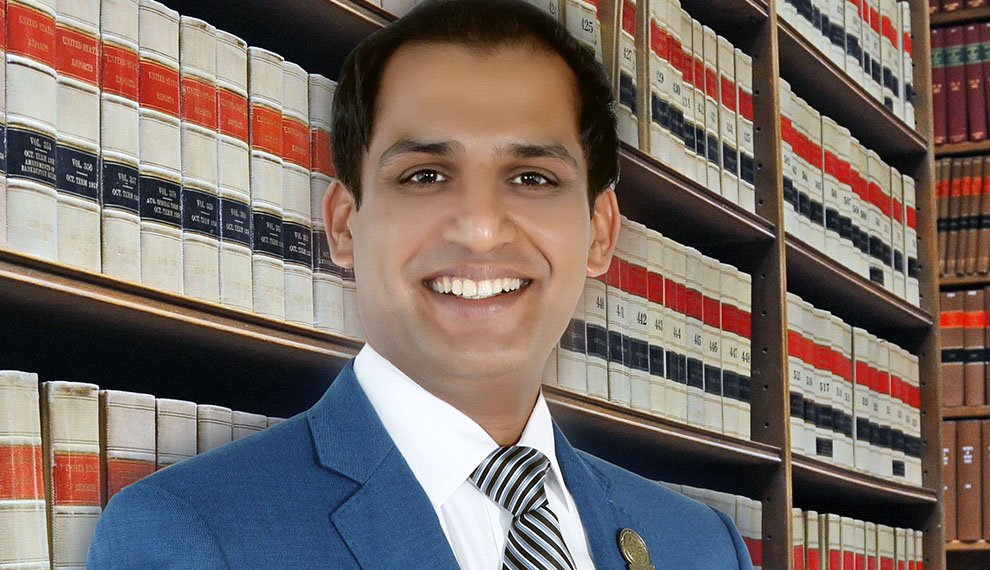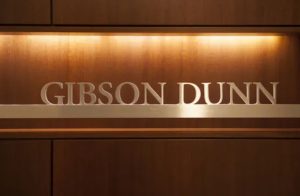To elaborate - protecting and enforcing Intellectual property rights has become one of the most contentious global trade issues. Traditional growth and development have been attributed to the revenues that are from oil and gas. However, the culture of innovation is now being embraced by various countries in the region which is evident from the results of the Global Innovation Index score with the United Arab Emirates leading the way among the GCC countries. With innovation comes responsibilities in protecting your invention and creativity. Both multinational business and local companies seek to leverage this potential from the perspective of a global business hub and strategic access to the other Middle East region by actively seeking protection for their brands, products and especially technology.
To clarify, since Middle East region consists of at least 17 countries, my response will be focussed on the six GCC member states [Bahrain, Kuwait, Oman, Qatar, Saudi Arabia and the United Arab Emirates] for a concise response.
In the United Arab Emirates, inventions can be protected via utility application, as well.
What patent protection is available in the GCC countries and how long does it last? What cannot be patented?
All GCC countries are part of the international treaties such as the Patent Corporation Treaty, Paris Convention and such. This uniformity of laws makes it less sceptical for stakeholders to determine whether to file their IP rights in the region. Like in most other countries, the right owners have the option to protect their invention via patent and design application. In the United Arab Emirates, inventions can be protected via utility application, as well. The protection lasts for 20 years, 10 – 15 years and 10 years (from the date of filing) respectively for patent, design and utility applications.
Denying protection to inventions whose exploitation would lead to the flouting of public order or morals confirms the respect of Sharia law.
As mentioned before, since the GCC countries are part of the international treaties – the specific non-patentable exception such as plant varieties, animal species, biological methods of producing plants or animals, discoveries, mathematical principles, business methods does exist in individual country laws.
Inventions that may lead to violation of the public order or morals are also not patentable. Denying protection to inventions whose exploitation would lead to the flouting of public order or morals confirms the respect of Sharia law. There is no guidance given from patent regulations regarding what inventions will offend public policy or morality. Potentially, an invention related to the production or consumption of alcohol or pork, products which contain natural compounds extracted from pork [such as fatty acid extracted from born fat of pork] would ‘encroach upon’ the morality and religious sentiments of the state.
Does having a unified patent system across the GCC countries have its benefits?
Filing of patent rights in the GCC countries can be effected in three ways:
- Direct filing of patent application in the countries of interest with or without claiming priority under the Paris Convention
- National phase PCT application
- GCC Patent filing system
It is also prudent to note that the GCC Patent system is neither part of the Paris Convention nor the Patent Cooperation Treaty.
The GCC Patent filing system provides an easy way to secure protection in each of the member countries. All member states of GCC are automatically covered in a Gulf Cooperation Council Patent application.
Patents granted by the GCC Patent Office covers:
- Kingdom of Bahrain
- United Arab Emirates [U.A.E]
- State of Kuwait
- Sultanate of Oman
- State of Qatar
- Kingdom of Saudi Arabia
There are no further prosecution steps required at the national level and are enforceable in each of the said countries. The GCC Patent office has no branch office. Therefore, all Patent applications are examined at the office located in Riyadh, Saudi Arabia.
It is also prudent to note that the GCC Patent system is neither part of the Paris Convention nor the Patent Cooperation Treaty. However, according to Article 7(2) of the GCC Patent law, a GCC Patent application can claim priority from a prior convention application as if the GCC system was a signatory to the Paris Convention. The fact that GCC is not part of the Paris Convention is important as it is not possible to claim priority under the Paris Convention to an application that was first filed at the GCC Patent office. Therefore, a potential applicant must consider this while strategising their Patent filings.
What complications are prone to arise when trying to secure a patent?
A handful of common oversight some clients do make are:
- Not understanding the procedural formalities (at least from filing till registration) in each country before making the decision to file for the application. For example, if the Applicant [Foreign entity] is not aware that legalized documents [such as Power of Attorney] are needed to complete the filing formalities, the costs and the time needed for these steps may not have been factored in the initial decision process.
- Not being aware that the profession of a Patent Attorney is not linked to the qualification of the person, (but the filing licence is given to the firm). Therefore, you might have agents filing patent applications who are not qualified, let alone have a technical background.
- Not understanding that high quality technical Arabic translation is required for filing the patent application in most Arabic speaking jurisdictions. If this is not taken care at the time of filing the application, the Applicant may end up increasing the prosecution costs due to the objections raised by the examiner during substantive examination.
GCC countries with its futuristic leadership, determination, strategic location, are only set to rise high in the global economy.
What complications can arise when trying to enforce your patent rights in the GCC region?
One of the primary concerns most stakeholders still raise is the lack of case precedence or jurisprudence. This cripples the decisive power for potential stakeholders based on statistics. This, however, will change and the litigation landscape will evolve as more investment for innovation is being attracted to the region where patents rights will be enforced, invalidated, opposed as such.
From a patent perspective - what would you advise companies who have a business interest in the GCC countries?
GCC countries with its futuristic leadership, determination, strategic location, are only set to rise high in the global economy. With growing competition from the local markets, both domestic and international players need to keep their Intellectual Property protected based on their market interest. Research fundings and innovation acceleration are being sponsored by state governments in the field of water technology, food sustainability, green technology, space research and such. Before you ‘miss the bus’, it will be prudent to protect your rights and leverage your direct or indirect interest in the region.
Although the Patent offices will grant practice license to firms to act before them, unlike in other mature IP jurisdictions, there are no requirements to have a separate license for individual Patent practitioners to qualify themselves as ‘agent’ or ‘attorney’.
Can you share issues that you believe need to be resolved for an effective patent regime?
“If I had six hours to cut down a tree, I would spend the first three hours sharpening my axe” – Abraham Lincoln
A country which provides incentives for innovation to university/research facilities will, in turn, lead to a steady increase in a nation’s innovation system. However, much needs to be improved to make the Patent regime robust when compared to the older and mature IP systems in the world.
Some of the areas which need improvement can be classified as follows:
Profession: Although the Patent offices will grant practice license to firms to act before them, unlike in other mature IP jurisdictions, there are no requirements to have a separate license for individual Patent practitioners to qualify themselves as ‘agent’ or ‘attorney’.
Faster prosecution: Some jurisdictions have relatively slow prosecution lead time, due to lack of patent examiners in the Patent office. Constructive steps need to be taken to fast-track the examination by collaborating with foreign Patent offices.
Access to the patent database: The lack or no proper access to the patent database which has been filed in the region is another major issue one needs to improve. Unless the published patent database is easily available to interested third parties, the statutory ‘tools’ like opposition, invalidation and cancellation cannot be efficiently exercised.
Although the domain of litigation and enforcement is yet another area which needs improvement, the aforementioned are some of the immediate reforms that the system requires, to encourage substantive patent filings within the GCC countries. Significant foreign investment and economic growth by innovation can be attracted by ‘sharpening’ the patent regime.
Disclaimer: Although a comprehensive insight to the topic is not an objective of this interview, the interviewee’s primary objective is to shed some light into the patent protection practice in this region. The firm accepts no liability for the content/legal advice given in this document, or for the consequences of any actions taken based on the information provided. Therefore, any further deliberative action that will be taken based on the above opinion has to be consulted with the firm.
Nevin Koshy
Nevin is a credible distinction engineer in biotechnology and a commendable high merit attorney in Intellectual Property Law from the finest university in the United Kingdom with proven analytical and communication skills. A person who has completed all his education till date in distinction or high merit, with more than 10 years of quality professional experience, he is a member of the Chartered Institute of Patent Attorneys, United Kingdom. He has worked for several reputed biotech industries both as a research scientist and as an Intellectual Property Consultant. He has his specialisation in Intellectual Property Law from the University of London and has numerous other degrees which he has taken during his professional career. He has also worked as an IP consultant in the technology transfer department of Queen Mary University of London [Queen Mary Innovation Ltd (United Kingdom)]. He is active in various international intellectual property organisations such as INTA, AIPLA, CIPA, APAA and is currently one of the Board of Directors of the AIPPI UAE Chapter. His focus areas are patents, design and copyright protection locally, regionally and internationally. He is also involved in trademark filing and prosecution matters for his clients. He is actively involved in IP training sessions and is a profound speaker on several regional and international conferences.
He is one of the firm’s Partner and is currently heading the patent department of United Trademark & Patent Services in their Dubai office.
United Trademark & Patent Services (UTPS) is a leading firm of lawyers and consultants specialising in Intellectual Property rights and issues.
With a heritage dating back to over 70 years, the firm is considered a specialist in intellectual property, laws for the Middle East, South Asia and Africa, by persistently keeping pace with the complex world of new technologies and the strategies required for protecting knowledge, vision and ideas. Excellence in our work has won the firm a leading position in this specialised field of law and we take pride in having more than 200 of the Fortune 500 companies on our firm’s portfolio.
UTPS specialises in Intellectual Property services relating to copyright, design, patent, trademark and information technology. The firm offers a one-stop service for all Intellectual Property matters. Among others, our services include:
- Due diligence and pre-filing clearance relating to Intellectual Property rights,
- Copyright, Design, Patent and Trademark filing & prosecution,
- Patent landscaping and freedom to operate analysis (worldwide),
- Patent specification translation to Arabic (which is a pre-requisite to file GCC or national applications),
- Licensing, franchising, distributorship issues,
- Acquisition, divesture & technology transfer,
- Intellectual Property portfolio management,
- Investigation and watch services,
- Company information,
- Arbitration & Dispute resolution,
- Infringement & Enforcement actions and litigation relating to those arising from commercial IP agreements,
- Domain name disputes,
- Anti-counterfeiting, administrative actions, raids and seizure of counterfeit products,





















